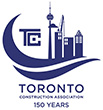What You Need To Know About Wall Insulation
It is highly important to live in a healthy house and adding insulation to the building will add comfort to your house. Insulating your house is one of the most efficient methods to save energy since it keeps the house warm in the winter and cool in the summer.
Toronto is already dealing with cold temperatures, so we would like to give you ideas on how to keep your house or office warm without high electricity bills. In this article, we are providing the basic information you need to know about wall insulation, types of wall insulation and what is the best insulation material to use.
You can Insulate your walls EXTERNALLY, INTERNALLY or both. First, let’s analyze each method of wall insulation.
Internal Wall Insulation
What is Internal Wall Insulation?
Internal wall insulation is a very effective method of creating a stable and constant environment and it prevents the external temperature changes from affecting the interior of your home. This is important in a region like Toronto, where climate varies from season to season.
Internal wall insulation usually consists of the dry lining in the form of flexible thermal insulating plasterboard (also known as the thermal boards), or built-up systems using fibrous insulation.
If the building has solid walls, then you can go for a solution like internal wall insulation. Unlike brick walls, where cavity wall insulation may not be suitable for solid walls. Generally, about 35 percent of the heat is absorbed by the walls of a house and proper insulation installation will ensure that you will be able to reduce the energy bills and maintain a more consistent temperature overall.
Why insulate internally?
To meet the Decent Homes Standard
Reduces heat loss
It will prevent heat from leaving your home
Less energy consumption - which means lower electricity bills.
Acts also as sound (acoustic) insulation
External Wall Insulation
What is External Wall Insulation (EWI)?
A method of upgrading the thermal performance and external appearance of existing properties
Insulated and rendered properties are transformed into warm, energy-efficient and attractive homes/buildings
External wall solutions comprise an insulation layer fixed to the existing wall, with a protective render or decorative finish. Dry cladding offers a wide range of finishes such as – timber panels.
Up to 35% of heat loss from poorly insulated buildings escapes through the walls. External wall insulation significantly reduces this heat loss, leading to a reduction in annual fuel bills by as much as 25%. External Wall Insulation systems also protect the building structure, prevent deterioration, and overcome thermal bridging and condensation problems. In a newbuild instance, EWI systems are the most cost-effective way of achieving the current & future thermal performance requirements for the building regulations, achieving an internal environment with low-temperature fluctuations and low heating requirements.
Why Externally Insulate?
To meet the Decent Homes Standard
Increases the thermal quality of the building
Overcomes moisture/condensation issues
Protects the existing building envelope
Reduces heating bills by 25%
Improves the building's appearance
How to Choose the Right Type of Insulation
Ecostar Insulation has more than 10 years of experience insulating homes from top to bottom. If you want to make your basement a better place, we can help find the appropriate solution for you. The most common materials used for insulation are spray foam, fiberglass, and foam board. We will describe each material shortly. For a better analysis, you can take a look at our previous post where we analyze the materials in detail.
>Foam Board Insulation
There are rigid foam products that are water-resistant that can help limit moisture buildup and mildew growth.
If foam board insulation is installed properly, the rigid material can create an air barrier.
There are foam board materials that are long term and you won’t have to maintain or replace them over time.
The foam boards won't provide airflow if not taped properly.
There is a risk for the air bubbles inside the foam boards to accumulate moisture and become ineffective.
The foam boards have to be cut precisely to fit the area so it can be properly installed. Air leakage can occur If the boards are not cut properly.
> Fiberglass
Fiberglass is cheaper as material compared to other basement insulation options.
If you are planning to renovate the basement yourself, you can install fiberglass as a DIY project.
Using fiberglass in the basement does not provide a barrier for moisture.
Because fiberglass batts are air permeable, it doesn’t protect your house from warm and humid interior air from contacting the surface of the wood studs in the basement.
It may lead to condensation and moisture issues.
If disturbed, it can release particulates into the air which can penetrate the skin or enter the airways.
> Spray Foam
Spray foam insulation prevents the growth of mold or mildew.
Spray foam creates an air seal that does not allow the outside air to get inside.
Open-cell spray foam prevents noise from traveling within the house.
Spray foam is environmentally safe and Greenguard Gold Certified.
Spray foam insulation will cost you more than other types of insulation.
It requires certified professionals to be applied.
Why choose us?
We at EcoStar Insulation strive to provide the best quality products and the highest standard of expertise. Our service includes a free consultation with an estimator where you have the opportunity to discuss application, products and design options available for your project. Our team will guide you from the consultation to the execution stage. Contact us for your free estimate, our project manager will answer all your questions.



